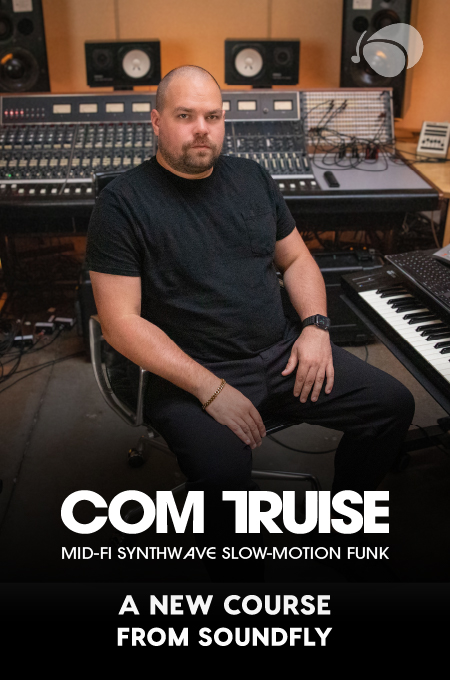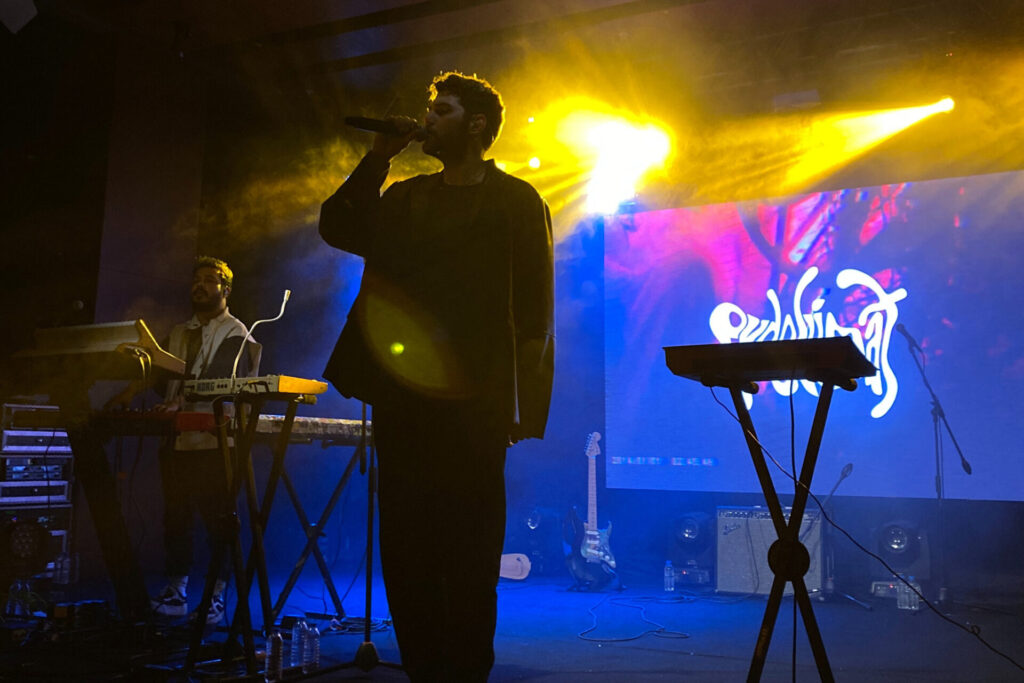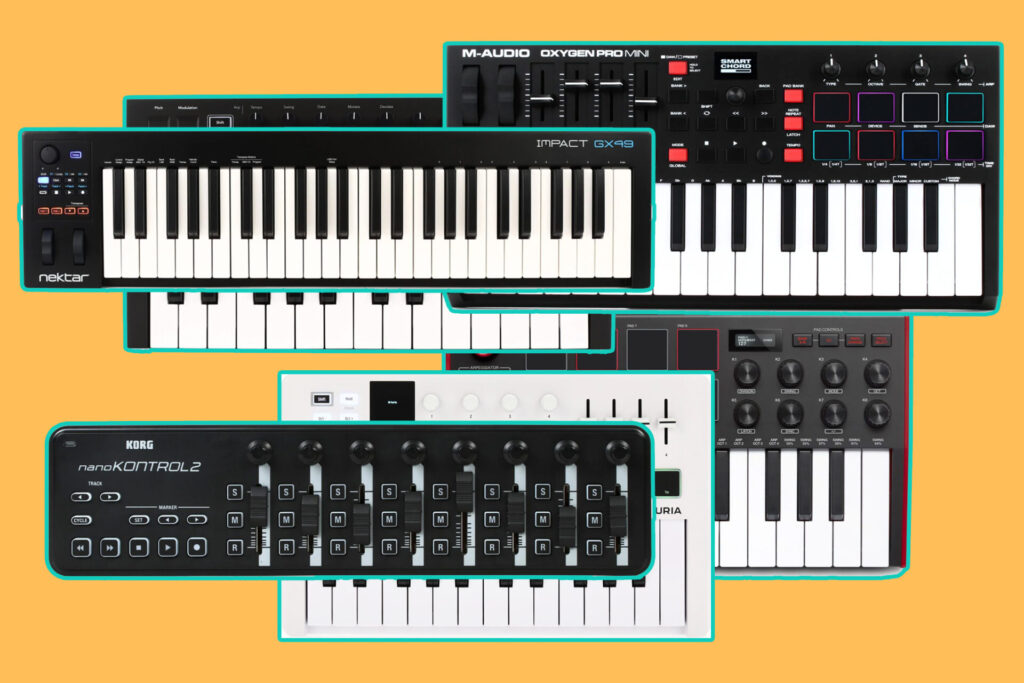+ Our brand new course with The Dillinger Escape Plan’s Ben Weinman teaches how to make a living in music without making sacrifices. Check out The Business of Uncompromising Art, out now exclusively on Soundfly.
Being a musician isn’t cheap, is it? There are recording costs, tour expenses, shipping materials, equipment repairs/rentals/repurchases, the cost of hiring a publicist or a marketer, and/or a radio tracker to push your music if you’re going at it DIY. And don’t even get me started on matching outfits.
It’s both normal and encouraged to seek out creative ways to finance all those costs, especially if your streaming royalties seem to be trickling in by the penny.
Acquiring a brand sponsorship or endorsement can help offset some of those costs and greatly expand your public visibility in the process.
And if you’re thinking, Yeah, but isn’t that kind of like selling out? Well, sometimes yes, but many times, not really! These deals are often non-exclusive and artist-friendly, like, for example, when a guitar-pedal company sponsors a guitarist by sending them free pedals in exchange for social media content that showcases the unit, or drum manufacturers that sponsor a drummer by offering a set of cymbals, while the artist is free to use other brands in their kit. And as an independent artist, you’re never obligated to sign a contract with any brand you don’t fully support.
A great example is violinist and composer Christopher Tignor, who counts as one of his many accolades that he’s the first musician ever sponsored by the German tuning fork company Wittner! (He’s also an interviewed guest in our free course, Touring on a Shoestring, which we think is pretty cool, too.)
So, scoring an endorsement or sponsorship deal can totally feel like you’ve hit the jackpot. But how exactly does one go about doing that? Follow these four steps to reach out to potential sponsors.
1. Know You’re Ready for a Sponsorship
This might be tough to hear, but even if you’re the world’s most talented musician, you need to have a few of your bases covered before you begin approaching sponsorship opportunities. Things like:
- Are you selling out hometown shows?
- Do you tour often?
- Are you making (at least a little) money?
- Is your social media engagement high?
- Are your YouTube videos well viewed?
- Is your mailing list subscriber count high?
All of these will lay the framework for sponsorship opportunities to come. The incentive for a company to sponsor you has a lot to do with sharing a similar message, access to a similar audience, and shared branding and beliefs, but it also has to do with them seeing in you the opportunity to have a lot of new eyes on their product. That’s why we bolded the social media bullet, as brands are often constantly on the lookout for ways to reach thriving social communities through endorsers of their product.
If you don’t have a lot of eyes on YOU, that’s not likely to help THEM. This is why setting that foundation is so important.
2. Create a One-Sheet
Hopefully, you have one of these already, but if you need a refresher, a one-sheet is a one page document that contains a short bio, member info, genre/bands you sound like (often labeled “for fans of” or “RIYL” for “recommended if you like”), and links to your EPK, website, music, and social channels.
You can keep it simple by creating it in Word or Google Docs and converting to PDF or get fancy by making one in Pages or Photoshop. Try to give it a bit of oomph to help it stand out, but don’t worry about making it too flashy. The goal is just to have a bite-size stack of info on yourself or your band to help companies get a sense of who you are in a minute or less.
3. Network
The golden rule of nearly everything you want to achieve in the music industry is that, inevitably, you’ll have to network to strengthen your chances of getting what you want.
This means:
- Getting out there and meeting new people in person at shows, local meet-up events, festivals, and anywhere else you feel that your fans or bands you want to get to know may exist. Local shows are a great way to get started since everyone is there for the same reason (to check out and discover great new music and meet like-minded people). Personally, however, one of the strongest ways I’ve found to network has been through in-person music industry meet-ups. There’s a bunch out there depending on your city, but if one doesn’t exist, why not start your own? Creating a weekly or monthly space for musicians and industry professionals in your city to gather and talk shop is a great way to meet new people, strengthen your city’s music community, and increase your relationships.
- Utilize your social media. Instead of just posting selfies to your Facebook, Twitter, and Instagram, use the platforms to meet potential fans, bands, and industry folks you want to get in front of. My favorite way to do this on Facebook is through groups. There are so many options depending on what genre you’re into, what city you live in, or what your general (often hyper-specific) musical interests are. On Twitter and Instagram, I encourage you to find and follow similar local bands, then find and follow their followers, and — here’s what makes it work — start engaging with them by interacting with their tweets and posts via actual genuine comments. It’s a great (and fast) way to introduce yourself to new fans and network with other bands.
4. Write the Perfect Pitch
Just like writing the perfect pitch email for press, there’s a protocol and etiquette that comes with approaching potential sponsors. The first step is to make a list of companies with whom you’d like to work. Think about what companies align best with your own brand, image, and beliefs as an artist or band. Don’t rule out small companies either, especially those local to your town — there can be a lot of value in those smaller partnerships. Think also about what companies you already support — are there certain brands you always find yourself buying or ogling!
Once you have your list in hand, start calling and emailing. Remember, like a press pitch, each email should be highly personalized and include why you want to work with that company. The more personalized, the better. These companies likely get more pitches than they can respond to in a week, so you want to outline not just why you want to work with them but also what they’ll gain from working with you.
Once you’ve sent your pitch, don’t be afraid to follow up after a couple weeks or so with a friendly reminder to see if they’ve received your proposal and if you can answer any questions for them.
Lastly, don’t get discouraged if you don’t immediately get responses or interest. When appropriate, if you get turned down, ask for feedback, such as what they are looking for when sponsoring someone. If you remain friendly, you may be able to take back some really valuable information and begin implementing it to gain even more sponsorships.
Take your time, have fun, and good luck! Your music career is a process, and things almost never happen overnight.
Rev Up Your Creative Engines…
Continue your learning with hundreds of lessons on songwriting, mixing, recording and production, composing, beat making, and more on Soundfly, with artist-led courses by Kimbra, RJD2, Com Truise, Kiefer, Ryan Lott, and Ben Weinman’s The Business of Uncompromising Art.




